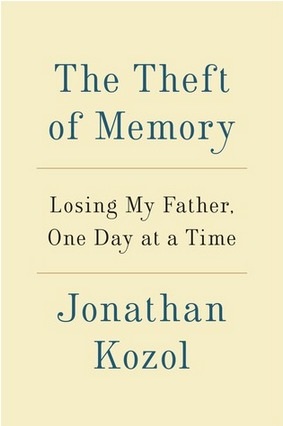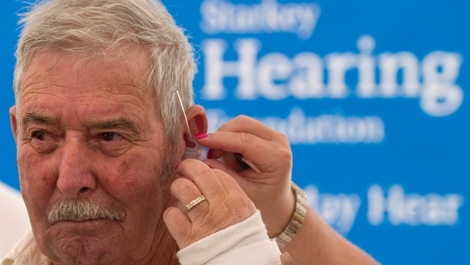
 With Christmas quickly approaching this week, we think not only about the individuals who find the holiday season emotionally challenging as a consequence of mental health issues, but also to the families and caregivers of loved ones with diagnoses of dementia. In the story below, one family describes how the holiday season can be an especially difficult time for those with a family member at home with Alzheimer's, filled with confusion for the individual with dementia and often sadness as the family reflects on the past and takes note of the changes inflicted by the disease. However, the article also incorporates information and suggestions from the family and experts in the field as to how to best support the loved one with dementia during this season, in addition to ensuring that caregivers are supported as well. "Caring for Helen as her mind deteriorates has never been easy for Terry and Mary, but the holidays make things harder. They have to strategize about how to celebrate without disrupting Helen's routine. They struggle with how to prepare relatives for Helen's inevitably worse condition and brace for the anger and disappointment they've come to expect when fewer friends turn up every Christmas ... For Mary and Terry, taking some of the pressure off has made Christmas more bearable, but they can't shake the sense of loss that comes with it. "For me the hard part is that my mother-in-law is still with us physically, but mentally she's not there," Mary says. "It's almost like having somebody that's a stranger at Christmas."" For the full article, click here: http://ht.ly/Wcnpv  Sandy Halperin is a dentist and assistant professor at Harvard University, who received the devastating diagnosis of Alzheimer's disease when he was just 60 years old. Though it began with having difficulty recalling case details at his job, he and his family have noticed a persistent decline in his memory. In the article "Sandy's story", we are given an "unprecedented look at the cruel journey of a vibrant, once healthy man as he gradually loses his memory". While Sandy and his loved ones describe the difficulties and emotional turmoil that of course accompanies a progressive dementia, Halperin demonstrates inner strength and positivity as we learn about his work as an advocate for Alzheimer's, and how he's coping including spending time with family and living in the moment. "At times, the memory loss is painful, Halperin says. "All we really are is our thoughts," he says. "So this is a different kind of pain. The pain is emotional." According to research published in March by the Alzheimer's Association, among people 60 and older, an Alzheimer's diagnosis stirs more fear than any other disease — even cancer or stroke ... Losing the ability to think and recall — what could be defined as the very essence of being human — is almost universally terrifying. So terrifying that many people dwell for years in a state of denial."  Dr. Harry L. Kozol, a man trained in both law and medicine, was a neurologist who was considered as one of the nation's top experts in the field of brain disorders. During his career, he became known for his work in forensic psychiatry as well as the field of neuropsychiatry which continues to evolve and gain further interest today. While Dr. Kozol spent his life assessing and diagnosing his patients, as he approached his 90s he made a life-changing diagnosis, except this time his patient was actually him. The diagnosis? Dementia. In this touching and honest memoir, Dr. Kozol's son Jonathan, chronicles his father's life, and particularly his journey with Alzheimer's disease. Through the novel, one also experiences the reactions, tensions, and heart-wrenching emotions family members and especially caregivers experience as they watch their loved ones deteriorate in front of their eyes. Recommended For: Caregivers, families affected by dementia and Alzhiemer's disease, family physicians and those interested in seniors mental health Service dogs have received well-deserved recognition in recent years for supporting those living with mental illness. Dementia Dogs is a recent initiative in Scotland aimed at training service dogs to help those living with dementia to maintain their independence. "[Dementia Dogs] can help people with dementia maintain their walking, sleeping and eating routine, remind them to take medication, improve confidence, keep them active and engaged with their local community, as well as providing a constant companion who will reassure when facing new and unfamiliar situations." To learn more about this amazing initiative, check out the Dementia Dogs website: http://dementiadog.org/index.html The Alzheimer Society of Canada in partnership with the Canadian Government has recently launched a new online campaign, titled Dementia Friends, aimed at raising awareness of dementia and how to better support those living with the disease. "A Dementia Friend is someone who learns a little bit more about what it's like to live with dementia and then turns that understanding into simple actions that can help people with dementia live well. Registering to become a Dementia Friend is easy and means joining a growing number of individuals and workplaces who are increasing awareness and creating positive change." To register to become a Dementia Friend, visit www.dementiafriends.ca |
Description
Supporting and enhancing students' and health professionals' knowledge and understanding of mental health and psychiatry
Archives
June 2017
Categories
All
|




 RSS Feed
RSS Feed
